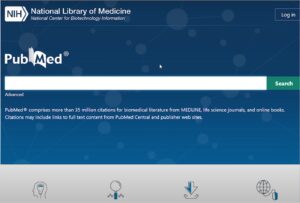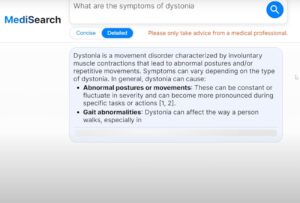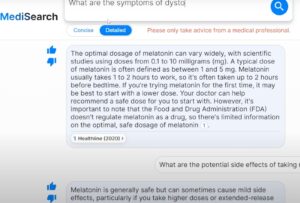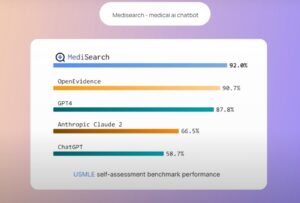In an era where healthcare evolves ceaselessly, the quest for accurate information dissemination has reached unprecedented heights. Amid this backdrop, the role of AI-powered tools is transforming the landscape, presenting a new paradigm that holds both opportunities and challenges for the medical community.
Picture this: a bustling hospital where doctors, armed with cutting-edge AI tools, navigate a sea of medical information to decode complex cases. The hum of machines harmonizes with the pulse of patient care, shaping the future of healthcare.
The transform ation spurred by AI’s unparalleled data-processing prowess is undeniable. Notably, platforms such as PubMed now harness the might of AI algorithms to categorize, distill, and curate research papers, facilitating rapid access to the most pertinent knowledge. This dynamic approach transcends the limitations of traditional search engines, which often prioritize SEO-optimised results over scholarly integrity.
ation spurred by AI’s unparalleled data-processing prowess is undeniable. Notably, platforms such as PubMed now harness the might of AI algorithms to categorize, distill, and curate research papers, facilitating rapid access to the most pertinent knowledge. This dynamic approach transcends the limitations of traditional search engines, which often prioritize SEO-optimised results over scholarly integrity.
Take, for instance, DeepMind Health—a formidable AI tool analyzing millions of medical records, unveiling patterns and insights that elude human expertise. The implications? Enhanced diagnoses and treatments for intricate diseases like cancer and heart conditions.
A New Dawn for Doctor-Patient Interaction: 
AI’s dynamic synergy with medical practitioners promises a revolution in the doctor-patient relationship. Consider the modern specialist, racing against the clock to stay abreast of research. Now, AI steps in as a formidable ally, distilling complex findings into succinct summaries and allowing physicians to craft tailored solutions for individual patients.
Patient Perspective Inclusion:
Imagine a virtual consultation powered by Babylon Health, transcending geographical boundaries to connect patients with doctors. The result? Enhanced patient access to care and doctors empowered to serve a broader audience
 AI-Powered Diagnostics and Treatment:
AI-Powered Diagnostics and Treatment:
AI’s capabilities transcend mere information retrieval. AI-driven diagnostic tools analyze symptoms and medical histories, offering potential conditions and assisting in precise diagnoses. This AI revolution extends to treatment recommendations, ensuring patients receive the most contemporary care available.
In the midst of this revolution, ethical concerns loom large. The “hallucination” phenomenon raises alarm, stressing the need for rigorous AI validation. Moreover, the ethical implications of AI in healthcare warrant thoughtful examination, from potential biases to safeguarding patient privacy.
Peering into the future, AI’s potential continues to unfold. It holds the promise of further innovations that could redefine medical research, diagnostics, and treatment. Patient voices amplify this transformation, sharing how AI-assisted care impacts their lives.
Empowerment of Medical Professionals: 
AI isn’t a rival to the medical practitioner; it’s a dynamic partner. By automating tasks, AI liberates doctors to delve into intricate cases demanding their unique skills. Real-world examples like Kira, streamlining medical coding, showcase how AI augments medical professionals.
As the curtain rises on this AI-reshaped healthcare landscape, the fusion of human and artificial intelligence emerges as the linchpin. The medical community’s adaptability to this transformative era hinges on their collaborative relationship with AI, where AI augments rather than replaces. Patients stand to reap the rewards of state-of-the-art research and the compassionate care only human professionals can provide.
–An Article by Maitreya Pawar
























